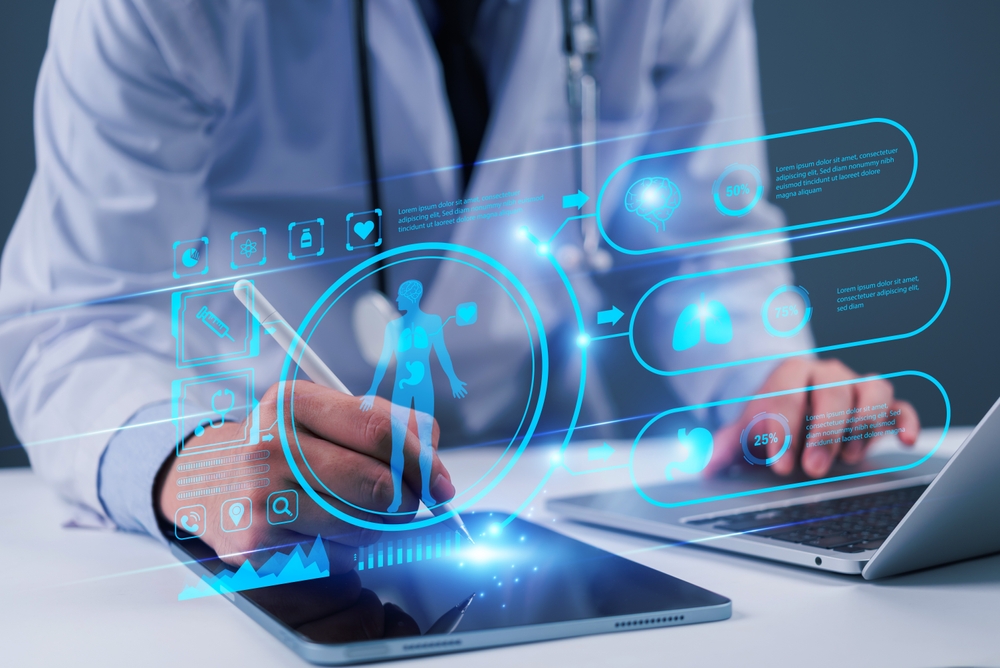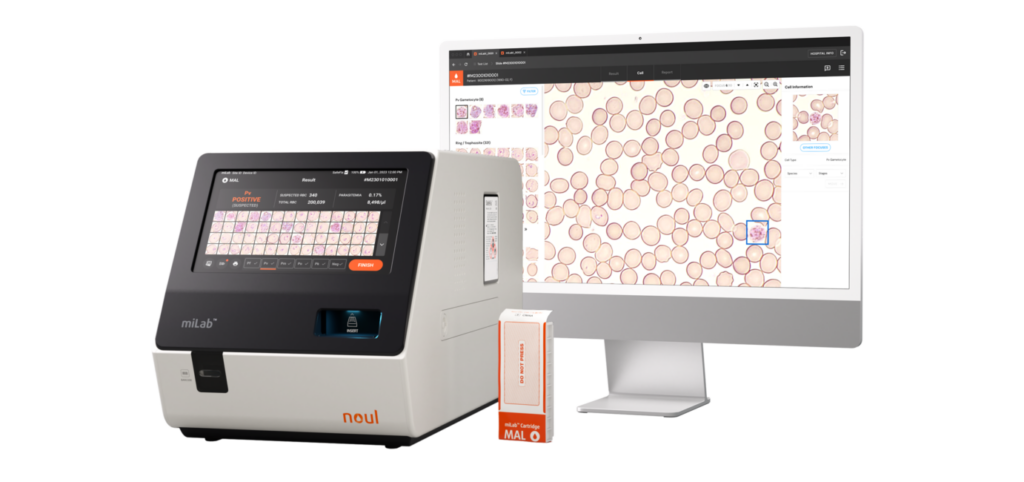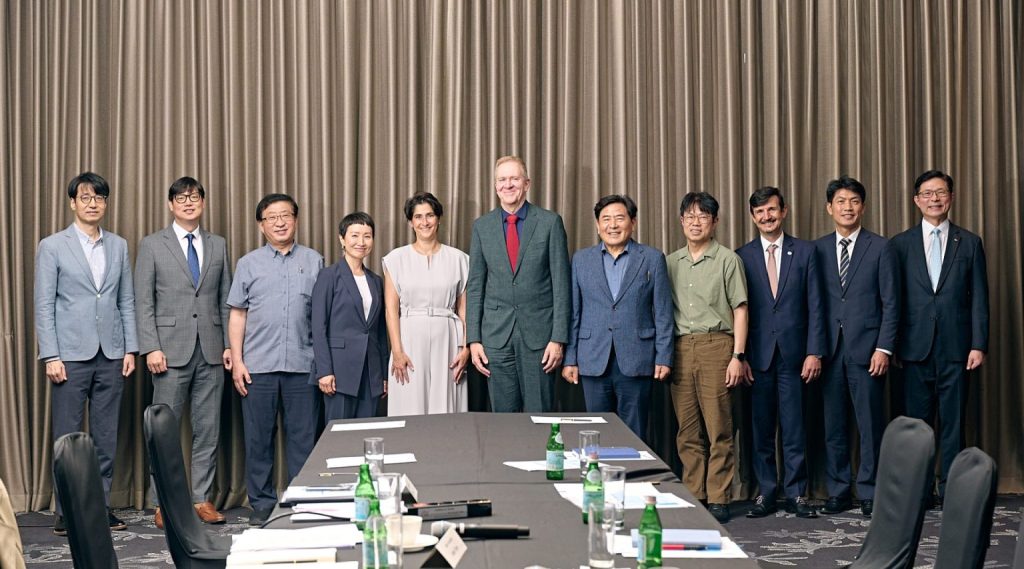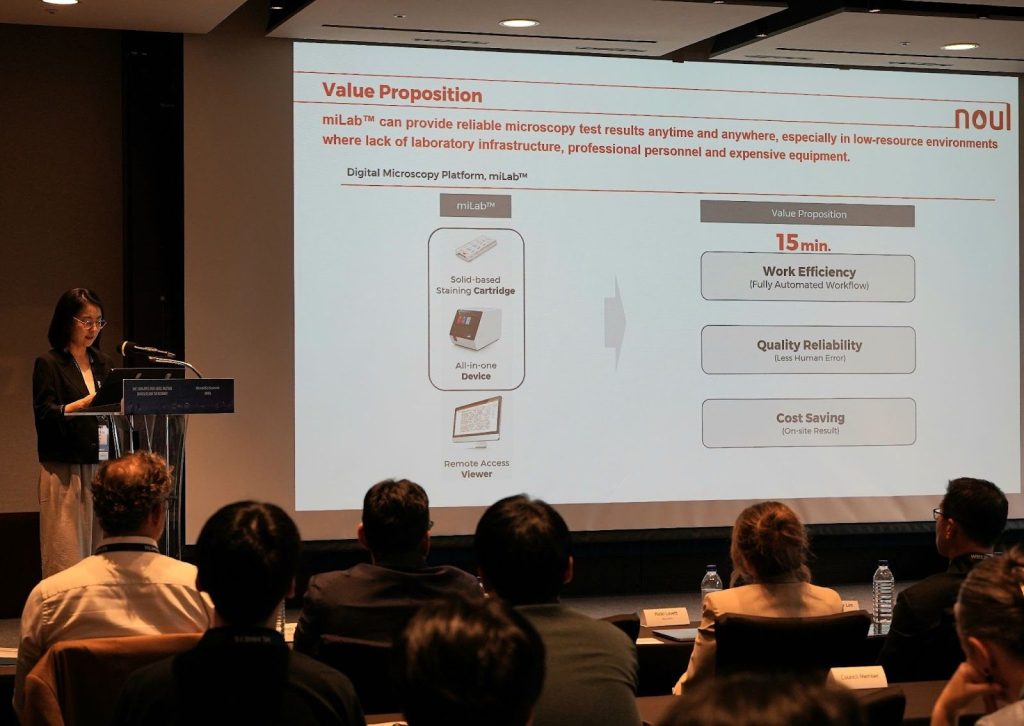
Source: shutterstock
Global IT leaders such as Google with Med-PaLM, NVIDIA with Clara, and Microsoft with Azure AI for Healthcare have successively introduced advanced healthcare AI solutions. This trend signifies that healthcare AI is no longer confined to the research stage but is becoming a central driver of innovation—enhancing accuracy and efficiency in real clinical and diagnostic settings.
In its first global report on AI in Healthcare published in 2021, the World Health Organization (WHO) recognized AI’s significant potential in disease diagnosis, health monitoring, and improving access to medical services. The report especially highlighted that AI can serve as a key tool in narrowing healthcare disparities in developing and rural regions with limited medical infrastructure, reaffirming the social value and transformative potential of healthcare AI.
AI Guiding the Future of Diagnostics

Source: shutterstock
As the use of artificial intelligence (AI) continues to expand across diverse healthcare settings, global diagnostic companies are introducing AI-powered diagnostic devices. AI supports clinicians in various areas—from medical image analysis and disease prediction to integrated data management—enabling faster, more consistent, and more reliable diagnostics.
In this way, AI is evolving beyond a mere technical aid to become a key tool that simultaneously enhances diagnostic accuracy and improves healthcare accessibility.
Noul’s AI-Powered Diagnostic Solutions

Source: noul
Noul has integrated its proprietary AI into an all-in-one diagnostic platform, introducing the digital microscopy solution miLab™, which handles everything from sample preparation to result analysis within a single device. miLab™ MAL automatically identifies malaria infection and distinguishes parasite species, enabling more accurate diagnoses and guiding treatment decisions. miLab™ BCM performs CBC tests and automatically analyzes cells, improving the efficiency of expert interpretation. miLab™ CER detects and classifies abnormal cells according to the Bethesda system, providing stage-specific cancer analysis and significantly reducing the time required for expert review.
Notably, Noul’s AI is optimized to deliver peak performance without relying on network connectivity, ensuring high-quality medical services regardless of the diagnostic environment. Thanks to this technology, miLab™ has established itself as a reliable diagnostic solution across a wide range of settings—from point-of-care sites to specialized hospitals—and aims to improve diagnostic accessibility, contributing to global health equity.
Proven Value of miLab™ on the Global Stage

Source: noul
In August 2025, Noul was invited to a global health roundtable jointly hosted by the Gates Foundation and the RIGHT Foundation. Representing South Korea as a leading healthcare AI company, Noul showcased its AI-powered all-in-one diagnostic platform, miLab™. The platform was recognized for its exceptional accessibility, highlighting its potential to advance global health equity, and drew particular attention as a practical solution for low- and middle-income countries where the adoption and deployment of AI technologies are most urgently needed.
In practice, miLab™ MAL has been used in regions with limited medical infrastructure, such as parts of Africa, demonstrating that miLab™ can enhance healthcare accessibility, reduce reliance on specialized personnel, and deliver high-quality medical services anywhere.

Source: noul
In September 2025, Noul showcased its AI-powered solution, miLab™, at the 2025 World Bio Summit, jointly hosted by the Ministry of Health and Welfare and the World Health Organization (WHO). As part of the summit, Noul presented at the RIGHT Foundation’s annual forum under the theme “A New Era in Malaria Management: AI-Powered Diagnostics for All.” The presentation highlighted how miLab™ MAL leverages AI to overcome the limitations of conventional diagnostic systems, such as variability in personnel and high costs, emphasizing its potential contribution to global health equity.
Earlier, in March 2025, Noul participated in NVIDIA GTC, presenting an abstract on its AI technology for cervical cancer diagnosis. The presentation underscored that healthcare disparities exist not only in low- and middle-income countries but also in developed nations due to factors such as location and income. It also conveyed the value of miLab™, demonstrating that AI-powered sample analysis provides consistent, high-quality diagnostic results for everyone, helping to overcome resource constraints.
Noul’s Commitment to Tackling Global Health Challenges

Source: shutterstock
Noul has consistently demonstrated its commitment to addressing global health challenges through AI. Its on-device AI, embedded within portable devices, operates independently of network connectivity, helping to alleviate the shortage of skilled personnel—a growing issue in the global diagnostic industry—while enhancing both accessibility and the quality of diagnostics.
miLab™, capable of delivering high-quality diagnostics without expensive, large-scale infrastructure, has already been deployed in approximately 30 countries since its launch. Recognized worldwide for its technological innovation, Noul continues to expand its market reach, striving to provide high-quality medical services everywhere and advance global health equity.
To learn more about miLab™, Noul’s diagnostic solution contributing to emerging global health challenges, you can explore further via the link provided.

